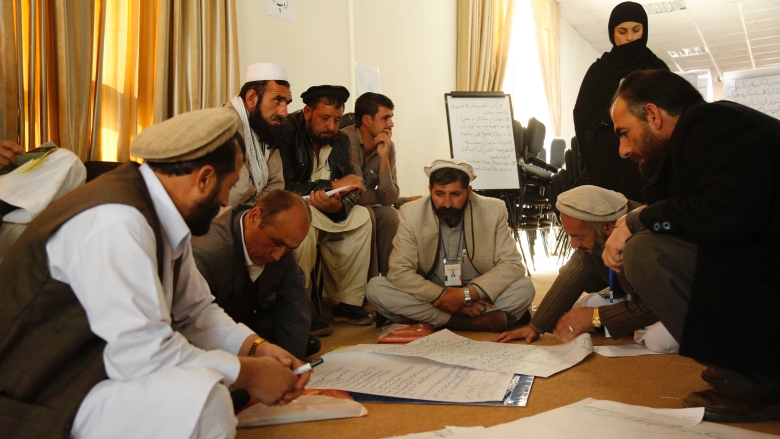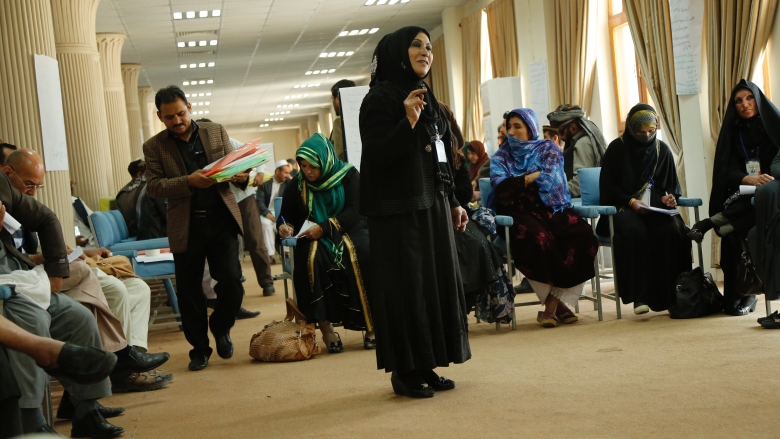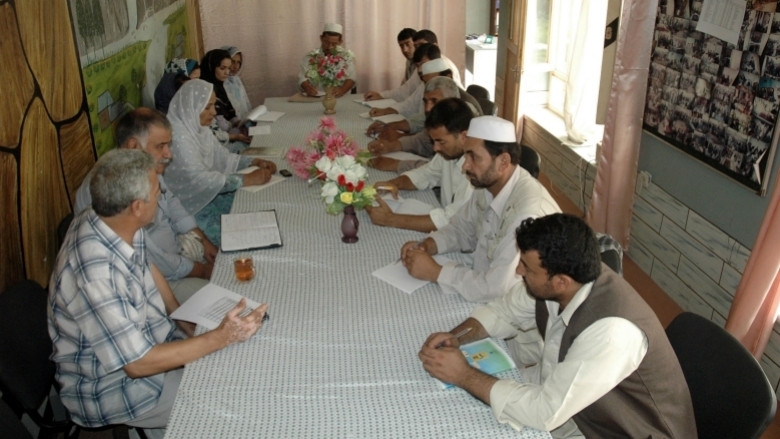KABUL CITY – Community Development Councils (CDCs), established in 85 percent of villages in Afghanistan, have shown to be highly effective in implementing development projects by engaging local communities in the initiatives. “It is a unique model—one that has proved its success in identifying local problems, developing the best ways to address them, and creating the best mechanism for implementation of solutions”, says Sher Shah Shahid, 41, former director of the National Solidarity Programme (NSP) in Balkh Province, about the CDCs.
CDCs are a key component of the NSP, the Government of Afghanistan’s flagship program on rural development. They have shown to be critical in citizen engagement in community initiatives. “CDCs have members from every part of the community so they know best about what their communities need,” says Shahid. “No other structure can be as effective as CDCs in identifying and prioritizing village-level problems. They know best how to implement projects so that its impact reaches the widest number of residents.”
The rich experience CDCs have obtained from project implementation and monitoring has given them a good reputation at sub-national and national level. They are seen by all stakeholders, including the international community and government, as effective and efficient implementers of community development initiatives.
Haji Mohammad Zahir, 56, a CDC member from Garmsir district in Helmand Province, points out: “Since people themselves implement projects in communities, they put more efforts toward maintenance of those projects as they feel a sense of ownership. This is a unique value of CDC work, which is extremely important to the success of the enterprise.”
Democracy in the villages
A CDC can be formed in any community with a minimum of 20 households and 50 percent female participation. Residents elect CDC members through secret ballot. A CDC comprises 12 to 30 members who serve for a term determined by the Ministry of Rural Rehabilitation and Development (MRRD), following which they are replaced by new members elected through another free and secret ballot election.
“CDCs have been established in 85 percent of the villages of Afghanistan since 2003,” says Ghulam Rasoul Rasouli, NSP Acting Executive Director, “35 percent of the CDCs have had two rounds of elections so far while the remaining 65 percent have had elections only once.”
The transparency in the elections has ensured a fair process. Says Ali Jan, 40, a CDC member from Daikundi Province: “In reality, CDCs are the real founders of democracy in villages. When a decision is to be taken at village level, all the residents see themselves involved. Both women and men can take part in the process, which was a rare thing prior to the birth of NSP.”
Atif Poya, another CDC member from Daikundi Province, agrees that women are now given more voice in community matters. “Women did not have the right to participate in discussion or any decision-making process in the past,” she says. “In our meetings, we now have around 40 percent female participation and women’s views are respected in decision-making.”
Multiple benefits from projects
In many Afghan communities, men and women volunteer to run for seats in CDCs to take part in community affairs to fulfill their social obligation. Assistance to disadvantaged groups such as orphans, the poor, and widows is at the forefront of many CDCs’ priorities.
“The projects which have been implemented in the communities through CDCs have been more useful to the beneficiaries,” says, Nematullah, 51, CDC director of Khuram and Sarbagh district in Samangan Province. “Now, CDCs also cooperate with the local government towards improvement of the security of communities.”
Beneficiaries, such as Haji Mohammad Askar, 55, from Ghorian district in Herat Province, point out the multiple benefits from development projects in their villages. “Before NSP, we did not have power and we could only grow poppy but ever since we implemented NSP projects in our community, we have electricity,” Haji Mohammad Askar says. “People now grow saffron instead of poppy on their farms.”



